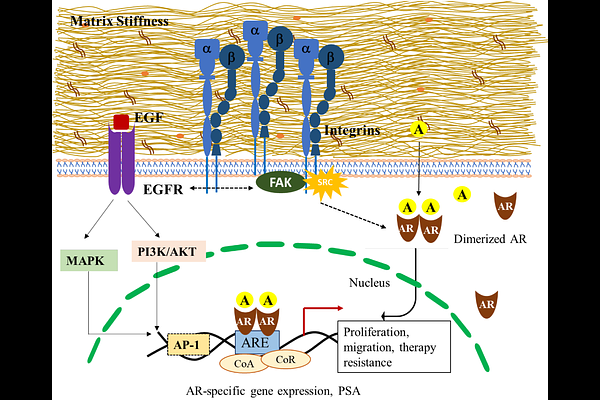ECM (collagen) mediated signaling drives the emergence of androgen independence in prostate cancer cells

ECM (collagen) mediated signaling drives the emergence of androgen independence in prostate cancer cells
Ranganathan, P.; Abikar, A.
AbstractThe extracellular matrix is a dynamic entity that undergoes continuous deposition, remodeling, and degradation to maintain tissue homeostasis. As a major structural component of the tumor microenvironment, the ECM plays crucial roles in providing mechanical support, modulating the microenvironment, and serving as a reservoir for signaling molecules. Tissue stiffness is primarily determined by the abundance and cross-linking of the ECM components. Collagen is one of the major components of ECM and contributes to 30% of the total ECM. Increased collagen deposition contributes to enhanced tissue stiffness and is associated with a more aggressive cancer phenotype. A restructured ECM, particularly collagen content, can influence cellular signaling pathways through interaction with cell surface receptors. In the current study, we investigated the role of collagen in prostate cancer. Our findings indicate that collagen, a major component of the TME, modulates prostate cancer cell migration, alters sensitivity to chemotherapeutic agents, and promotes non-genomic activation of androgen receptor signaling through FAK activation, thereby contributing to therapy (androgen deprivation therapy) resistance and cancer progression.